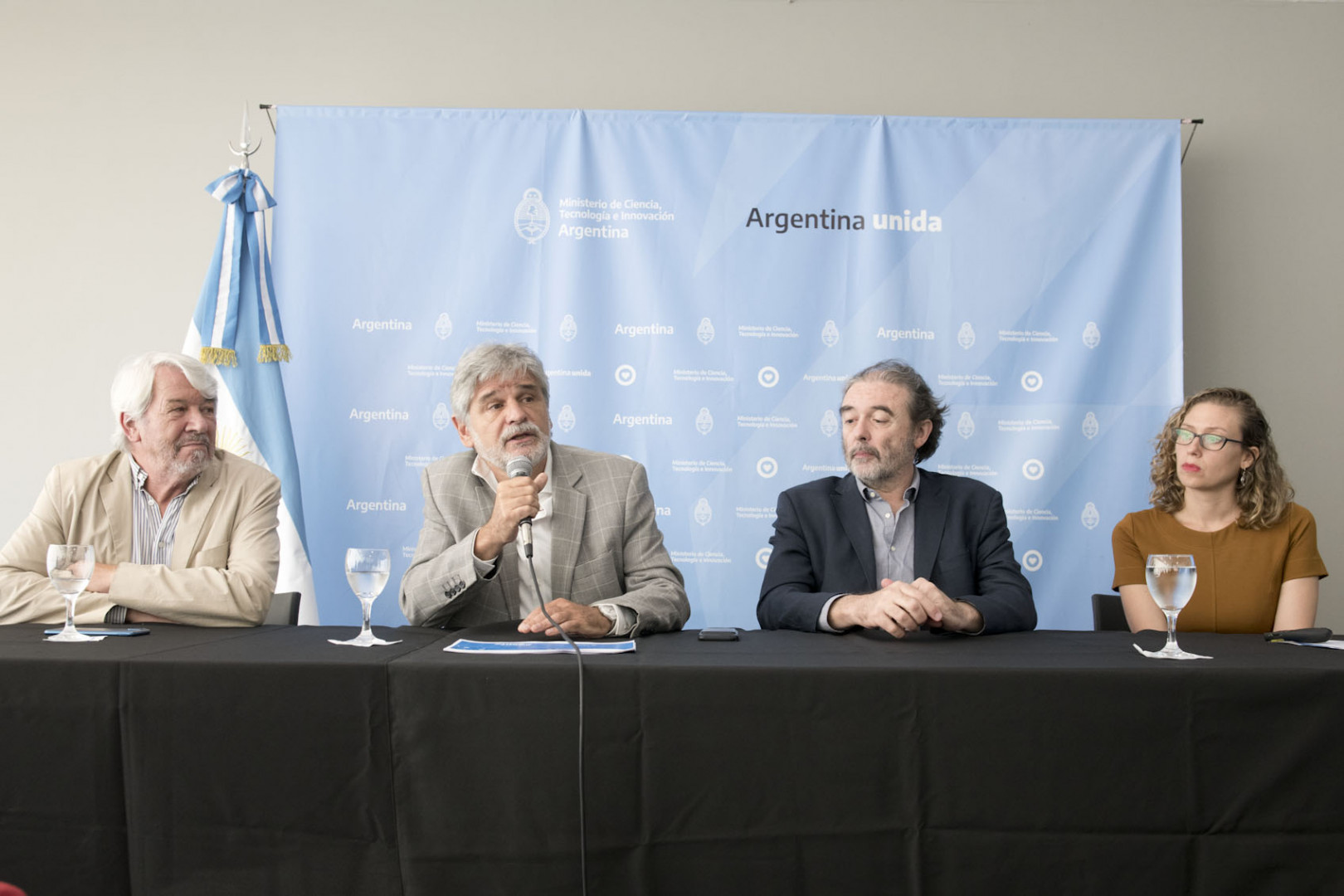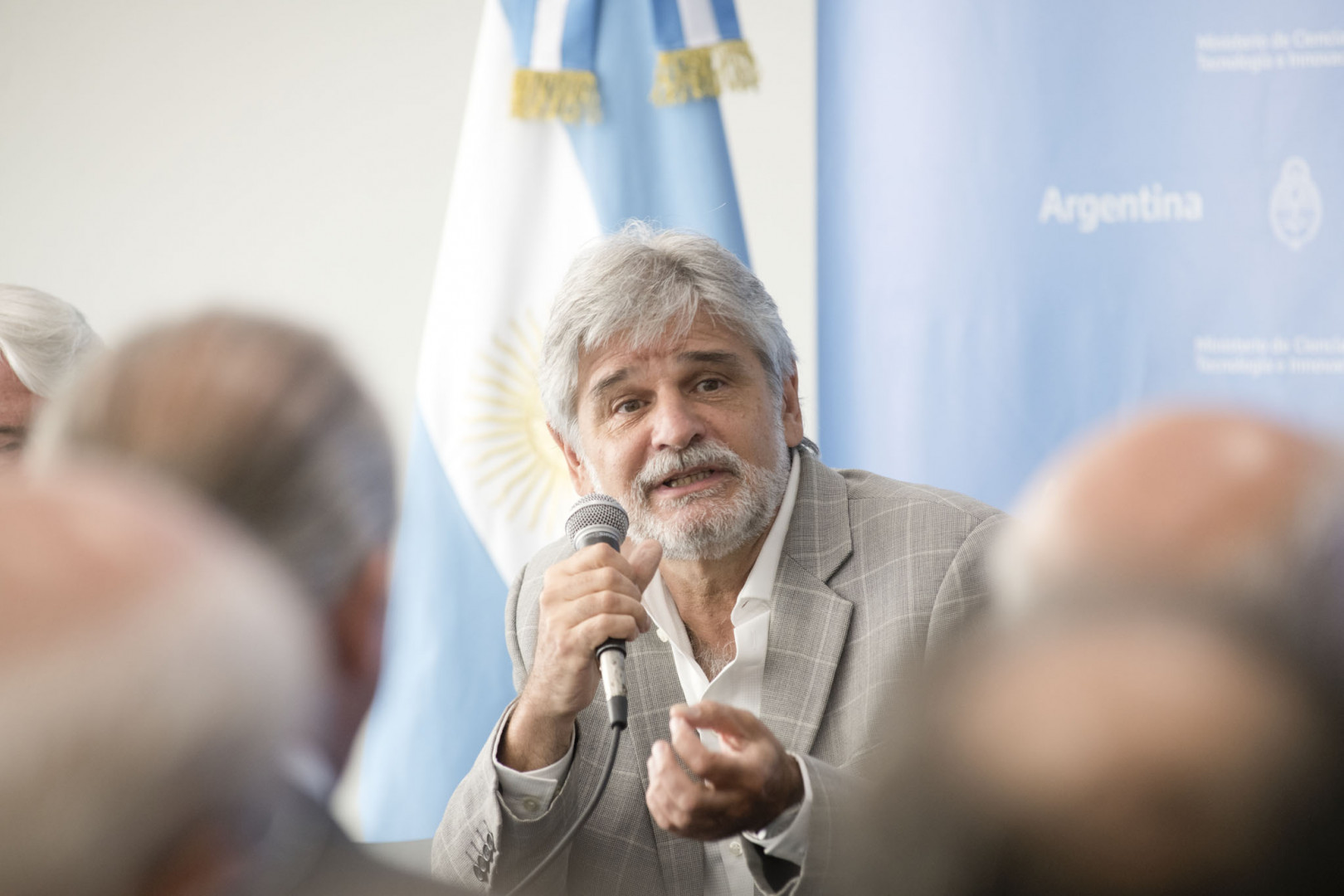The call for federal high-impact network projects has been launched

At the Sci-Tech Pole, the call for high-impact federal network projects was launched with the introduction of the head of the science portfolio, Daniel Vilmos. Secretary of the Technological Scientific Detail, Juan Pablo Paz; Under Secretary for Institutional Evaluation, Gabriela Dranovsky, and CONICET Associate Principal Investigator and Full Professor at Cuyo National University, Carlos Palcero. The call aims to promote the formation of research networks of the highest qualifications that focus on the strategic issues identified in the National Plan for Science, Technology and Innovation 2030.
During the launch, Filmos reported that this call “was a process that generated a lot of discussion” and revealed that “scientific policy-making involves a lot of complexity and is about discretionary decisions, because in all decision-making there is a political decision.” The Minister explained that “In a country with huge debts, the challenge of taking on this initiative with highly trained scientists is possible due to compliance with the National Science, Technology and Innovation System Funding Act. Determining investment in these privileged groups responds to certain decisions such as keeping them competitive over International level, which, for example, through this type of project. We believe in continuing to maintain research teams at the highest international level which in turn will form other groups in different parts of the country and break away from this historical focus.”
Filmos also highlighted the possibility of merging newly formed universities (established as of 2009) located in decentralized places: “The difference in distribution is fundamental and is part of the discussion and we will improve it. This science project assumes that it is a long-term policy” and therefore demanded. with the maturity of the Argentine scientific community and politics to give them continuity.” He concluded by thanking those in charge of the project.

For his part, Paz said “It is a program that we have been working on for some time and whose purpose is to provide Argentina with a SNCTI that allows it to advance in the transformation necessary to change the productive matrix. For this, the scientific system must be strengthened and many structural problems that operate in an uncoordinated and uneven manner must be corrected.” Regarding resources “and he stressed that” having more science and technology in Argentina means that it is better distributed so that there are more scientists / as work and more scientific production, more results. Paz noted that the initiative “aims to take measures to improve quality and we hope that it will be interpreted as an incentive. The aim is to finance the consolidated groups present in Argentina and provide them with the tools to work better and address ambitious problems and projects in the priority areas of the CTI plan so that they in turn help promote the growth of the groups new ones in areas where there is little .science. or less scientific activity.”
In turn, Dranovsky presented the program that responds to the ten national challenges of the CTI National Plan for the next decade, “and we added a cross-sectional axis, which is sustainability.” The Under Secretary presented the requirements to appear on the call and listed the jury that would be coordinated by Balseiro and made up of eleven experts and would evaluate the projects.
For his part, Palsero expressed, “The program covers all areas of science, so we will find diversity that can build to develop high-impact science.”
Undersecretary of the Ministry of Studies and the Future, Eduardo Malo. National Director of Corporate Goals and Operations, Laura Martinez-Porta; Chief of Staff of the General Secretariat for Scientific and Technological Expression; Vera Brodney is the deans of universities, researchers and authorities, among others.
High Impact Federal Network Projects
Projects must fall within one of the specific thematic categories of the call, defined in accordance with the R&D and Innovation Strategies for National Challenges of the National Science, Technology and Innovation Plan 2030.
Networks should be coordinated by high quality, internationally recognized groups and should be integrated by at least one recently formed group to collaborate in their development and strengthening. As an additional condition, no more than two of the groups that make up the network may be located in the Buenos Aires metropolitan area and at least one group must belong to areas of relatively less development, in the institutions in which the scientific and technical function is. not uniform. Similarly, at least one group in the network must be led by a female researcher or a male researcher from outside the CIS.
Jurisdictions that do not belong to the central regions of the country, namely the City of Buenos Aires, the Province of Buenos Aires, the Province of Cordoba, the Province of Santa Fe, or the City of Bariloche, will be considered the least developed region related to the jurisdictions that do not belong to the central regions of the country. To form this distribution, indicators such as the total number of full-time equivalent researchers, the total number of researchers by population, the implemented budget and the relative sophistication of the scientific and technical job were considered.
In addition, the following will be included among the group of less developed fields related to recently formed university institutions (established as of 2009) since the function of science and technology has not yet been integrated into them: UNaB, UNAHUR, UNAJ, UNAU, UNDAV, UNLC, UNM, UNO, UNPAZ, UNSADA, UNSADA, UNSO, UNTDF, UNViMe.
The amount to be financed (per project) is equivalent in pesos to US$250,000 per year over four years.
The closing call date is April 17, 2023.
To find out more enter here

“Award-winning zombie scholar. Music practitioner. Food expert. Troublemaker.”


/cloudfront-eu-central-1.images.arcpublishing.com/prisa/AHVYMMDSTZDTDBFNZ3LMFUOKNE.jpg)






